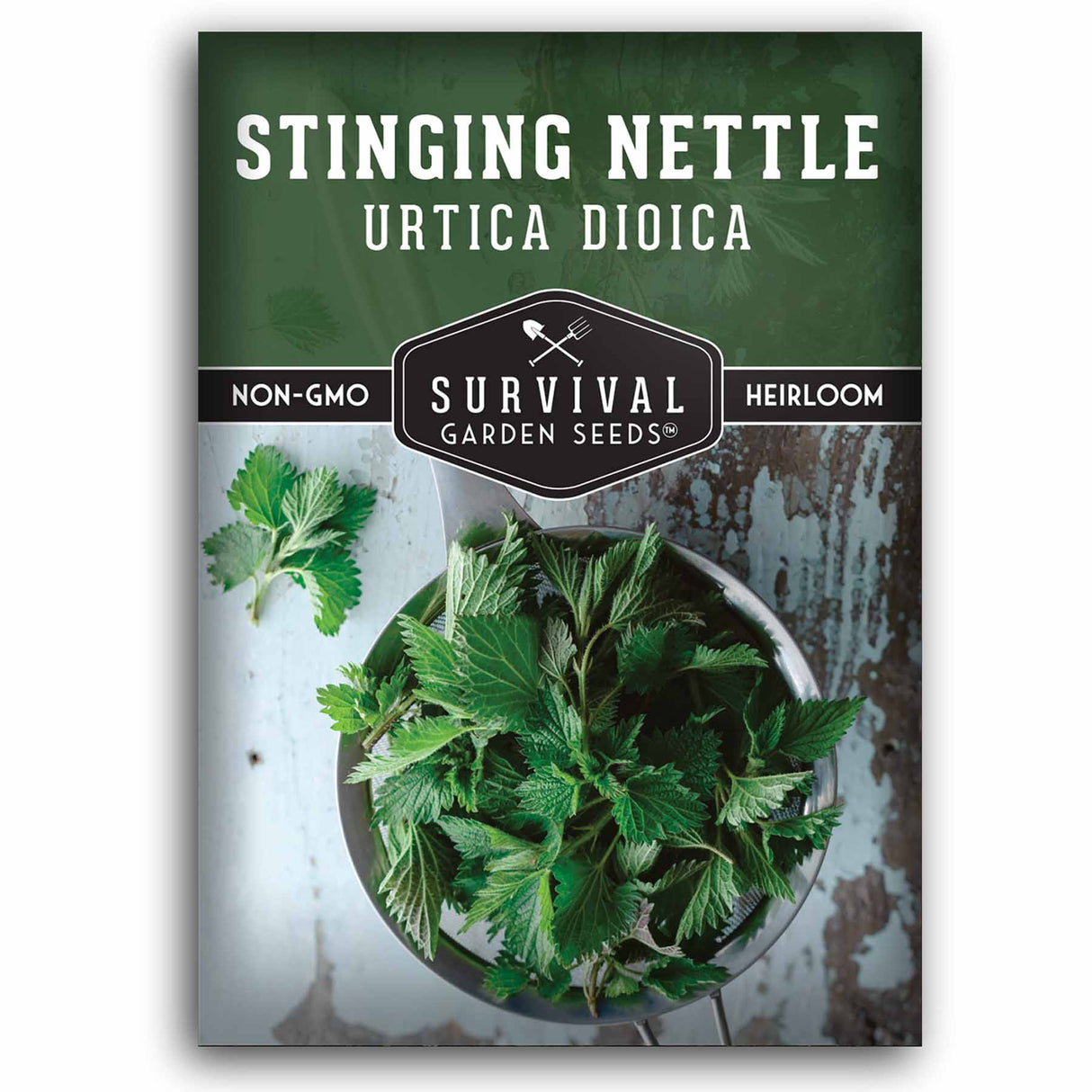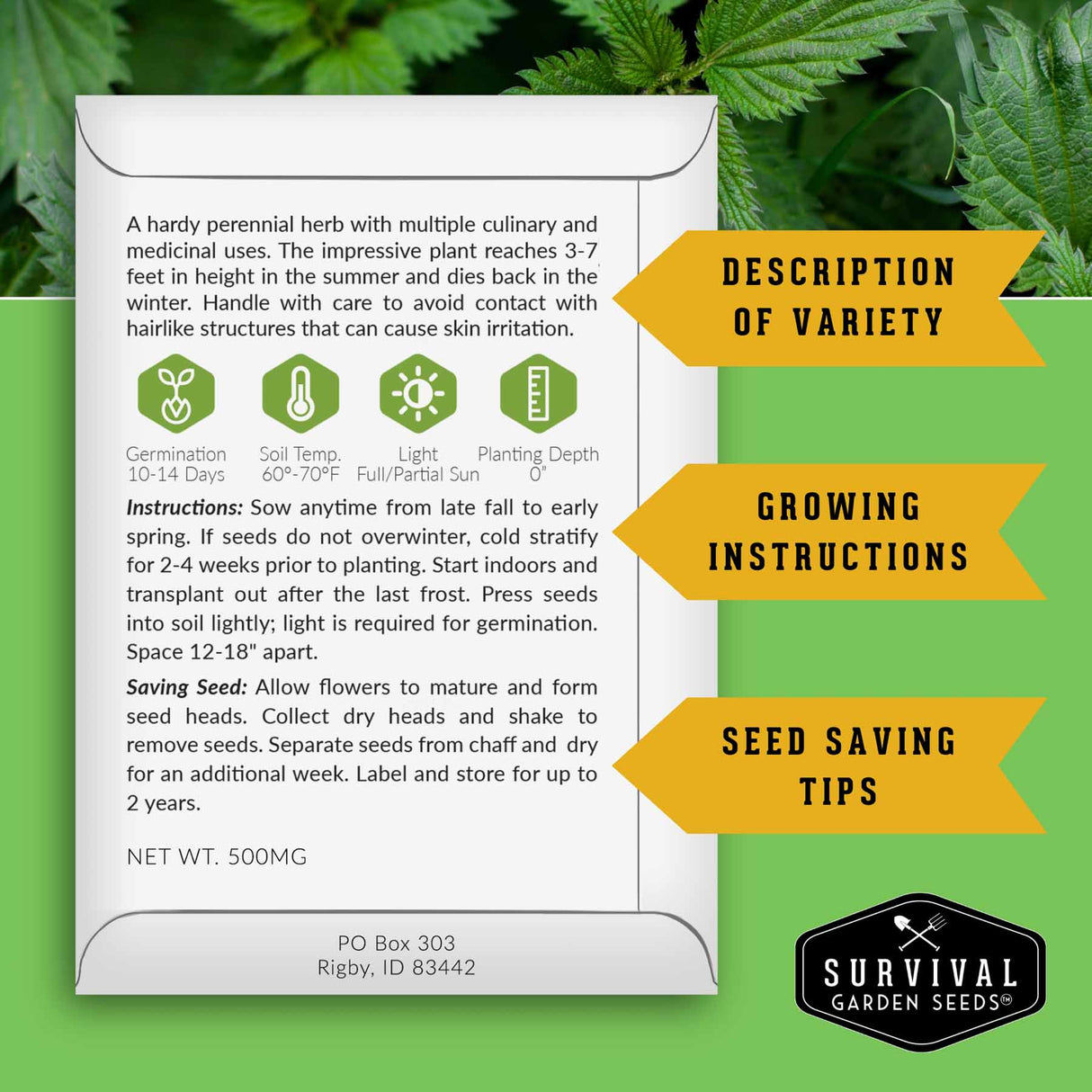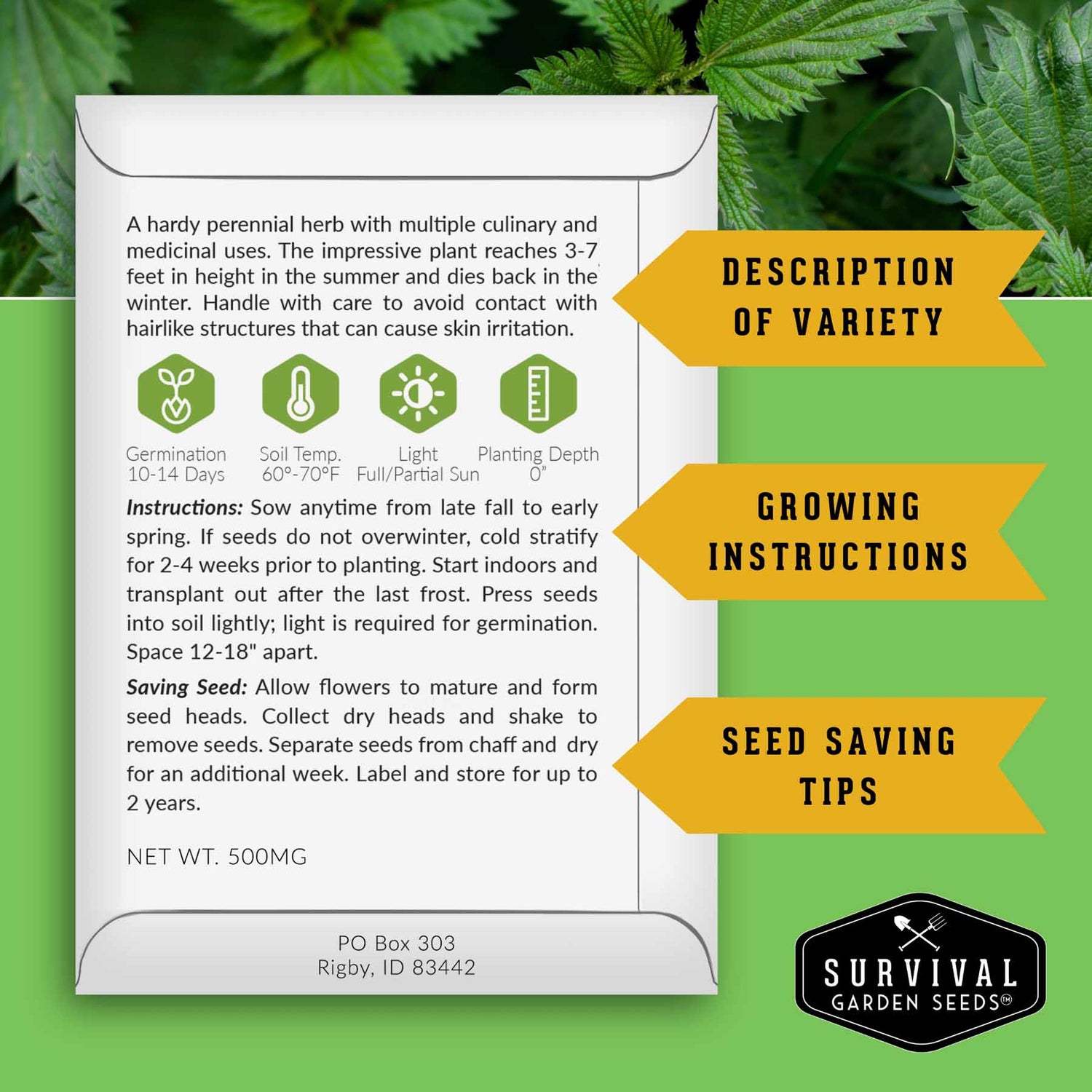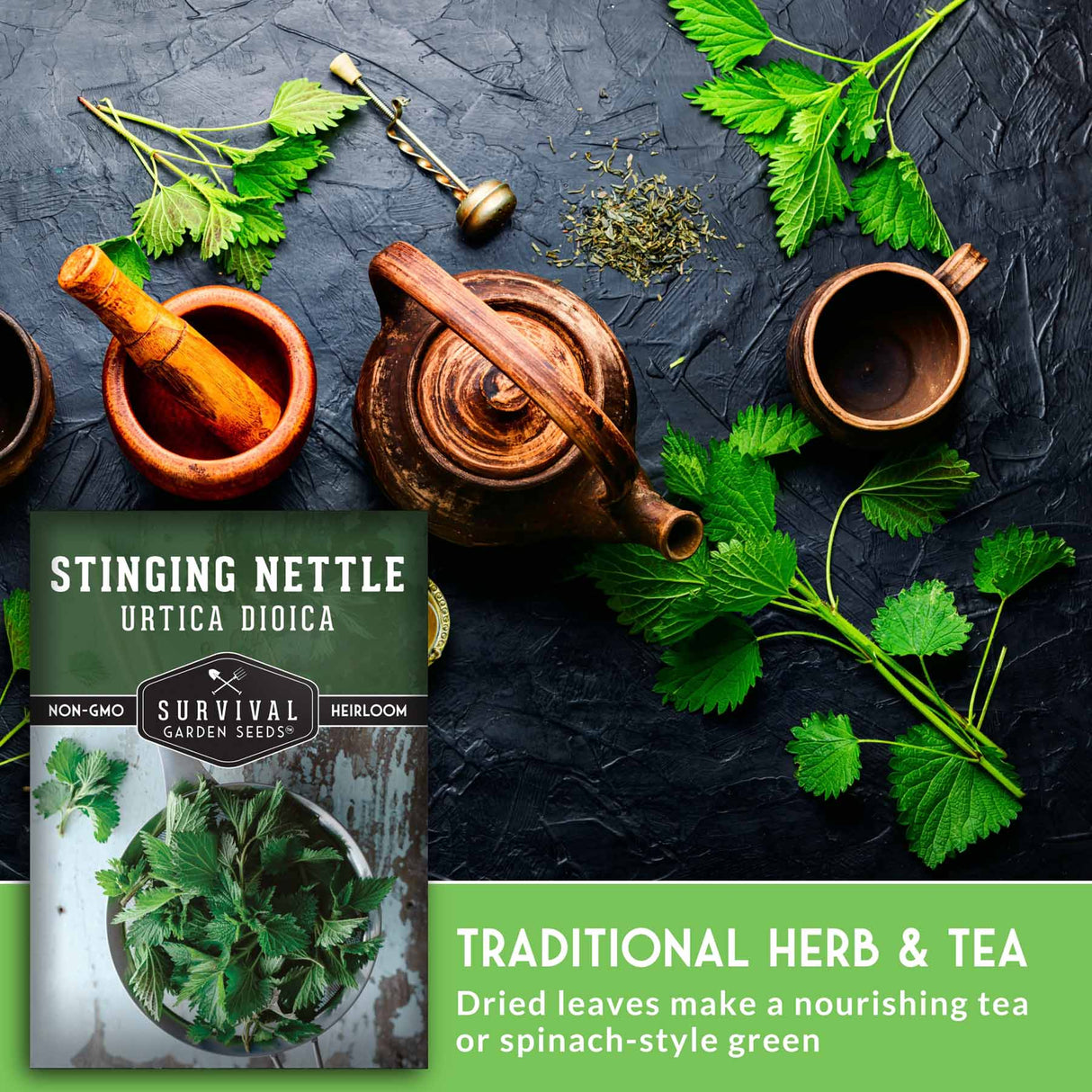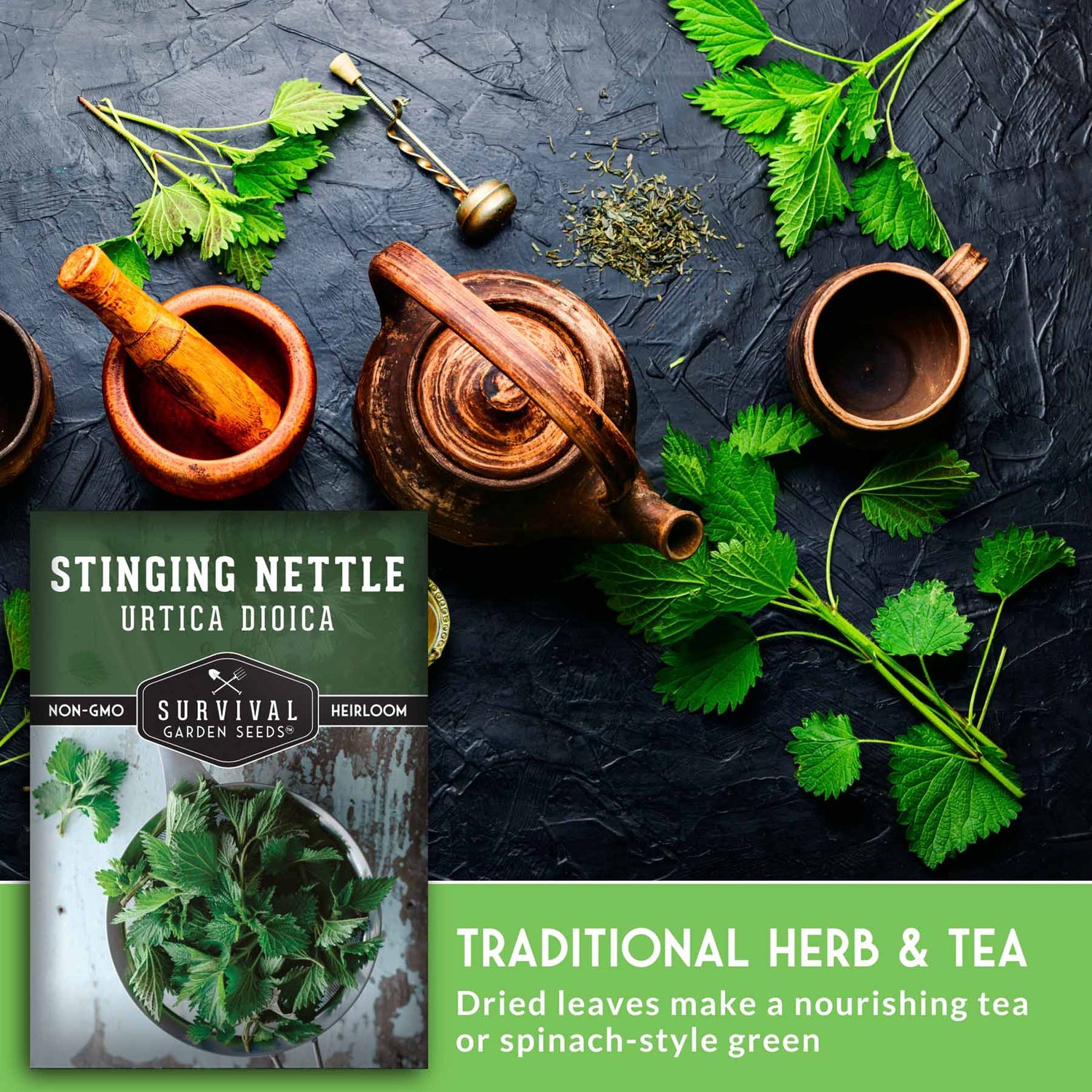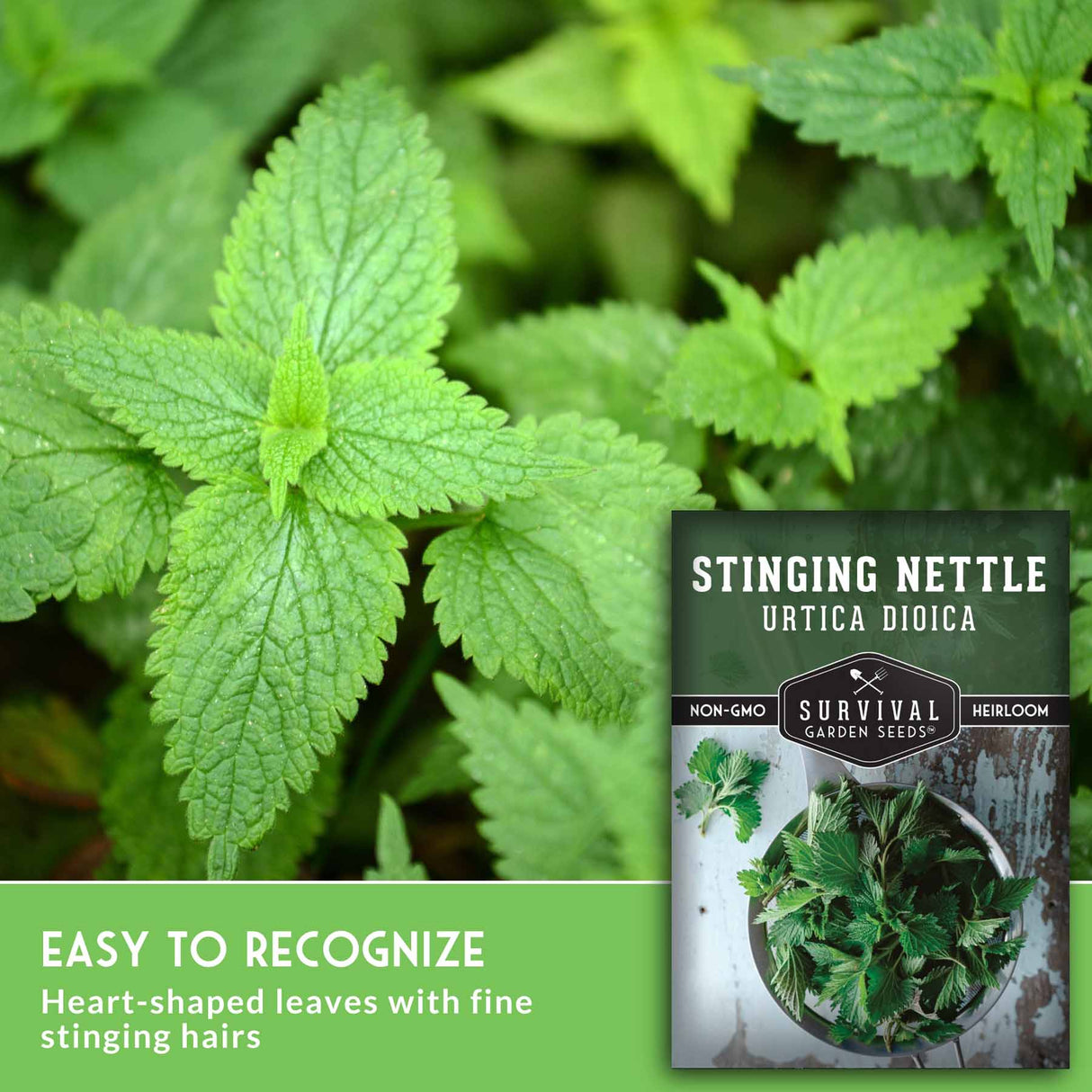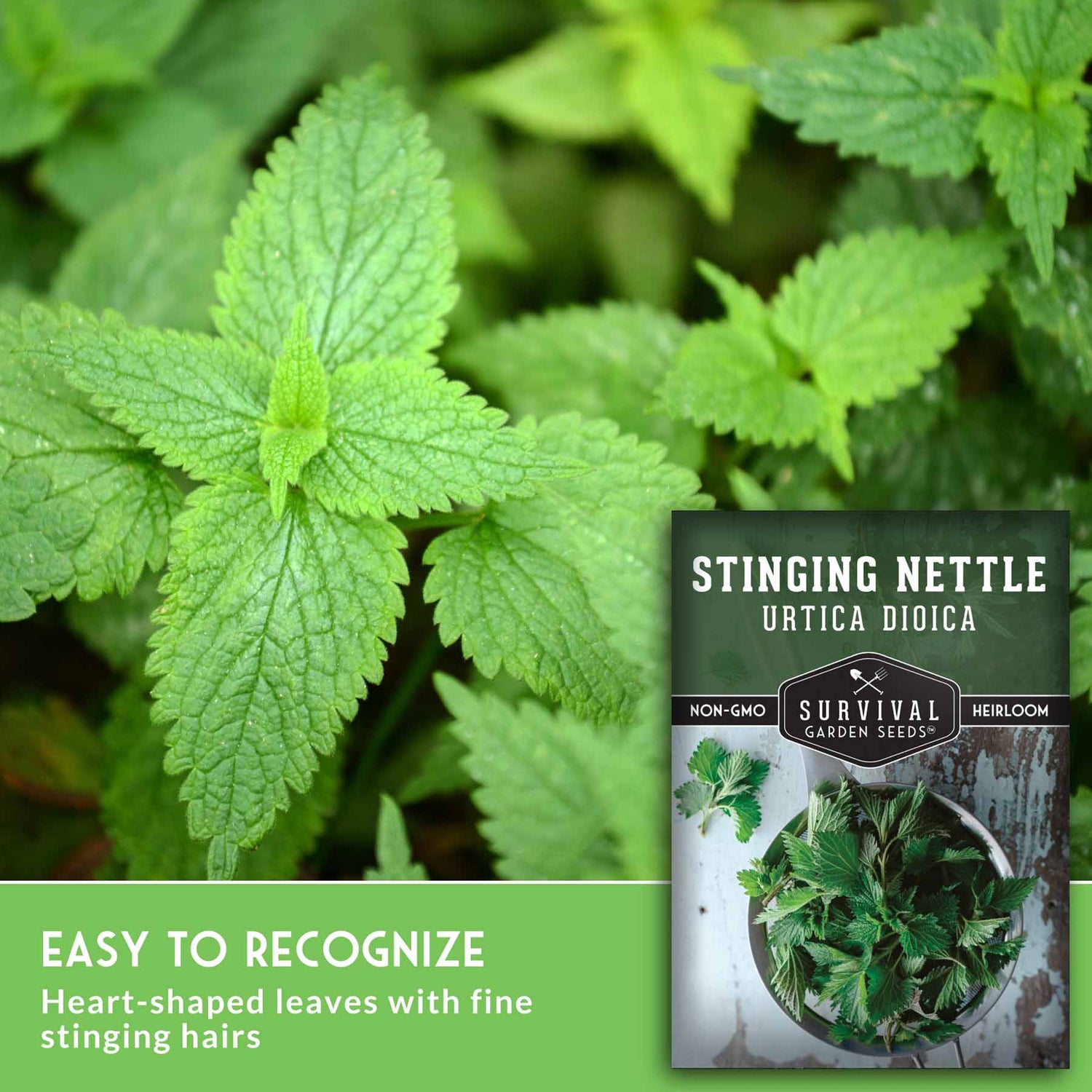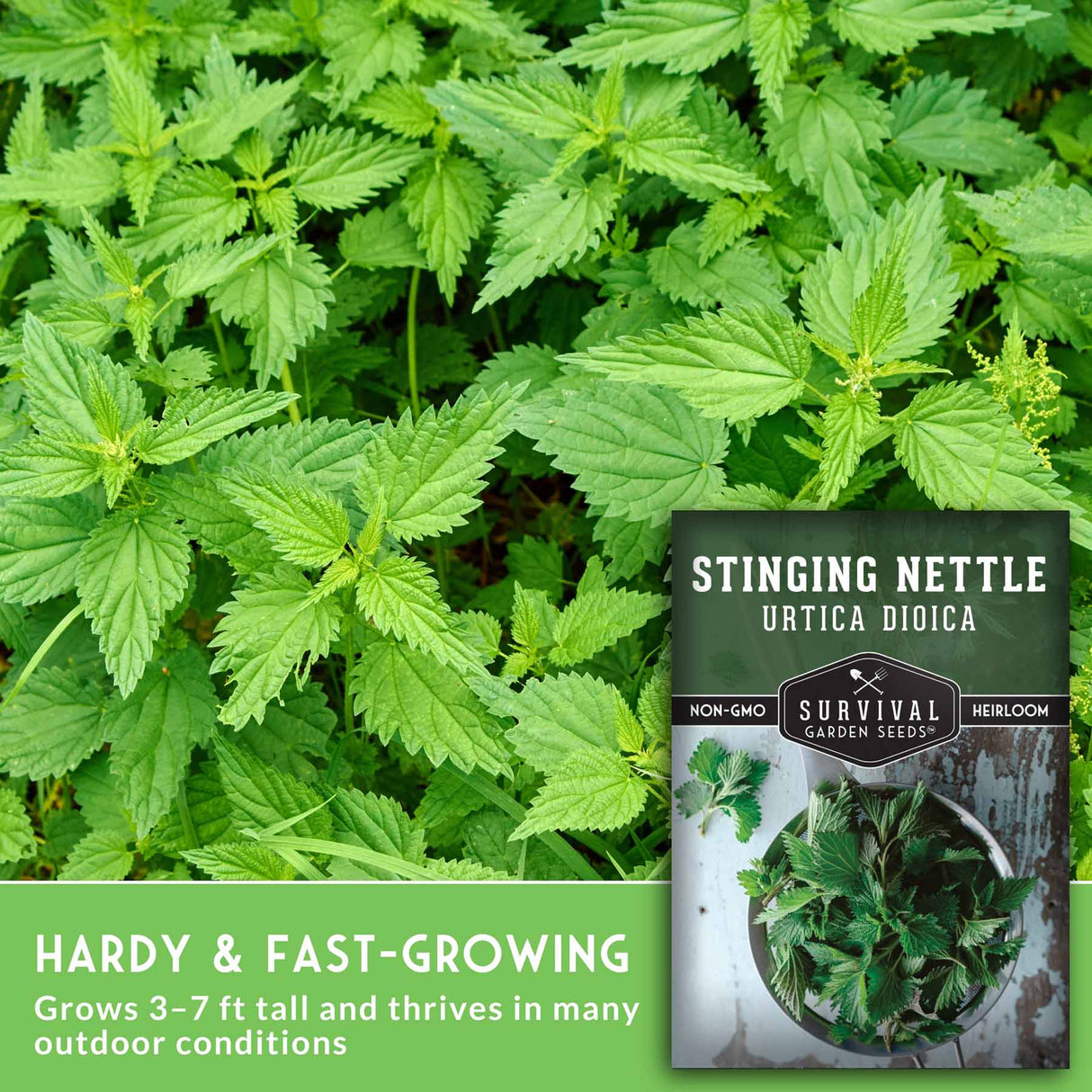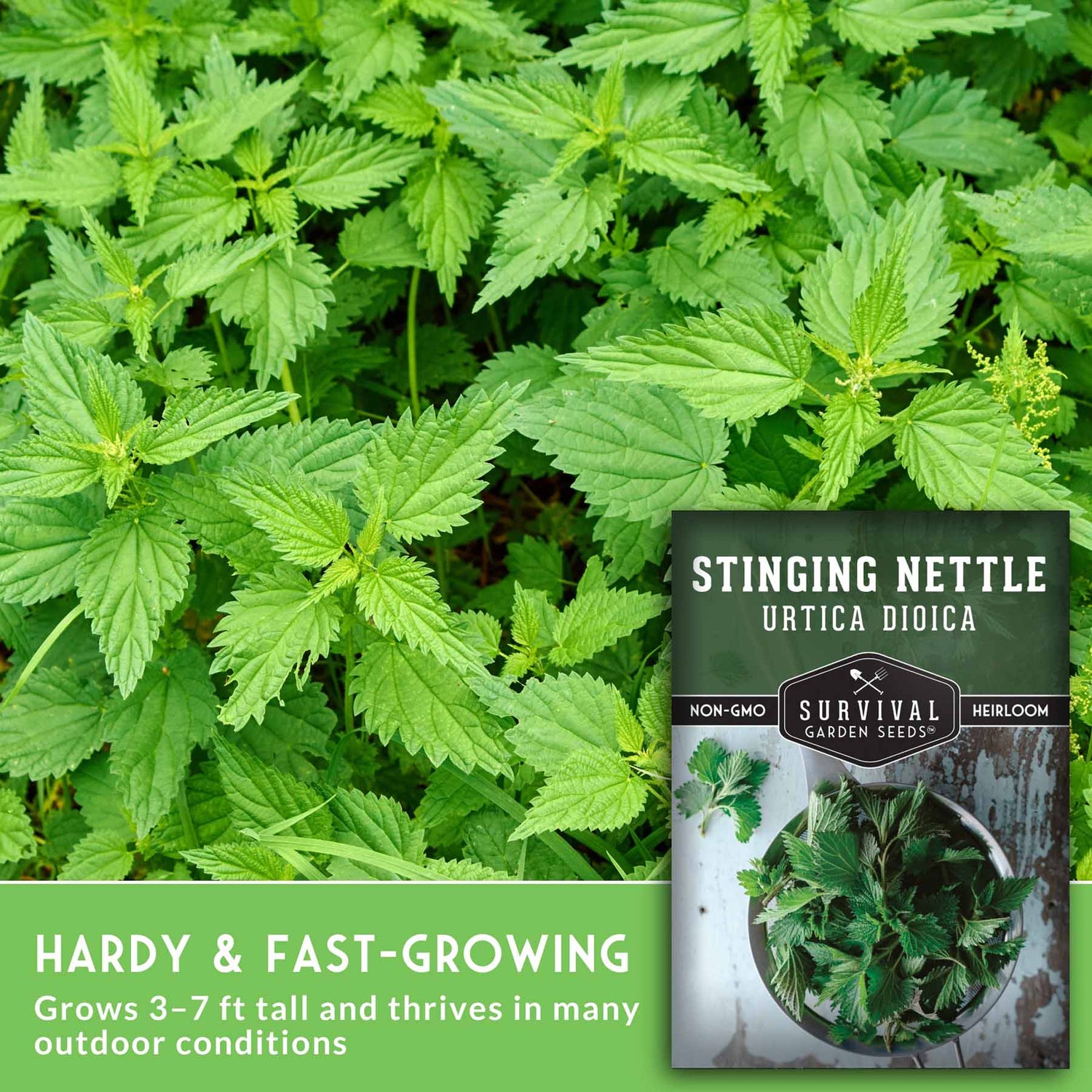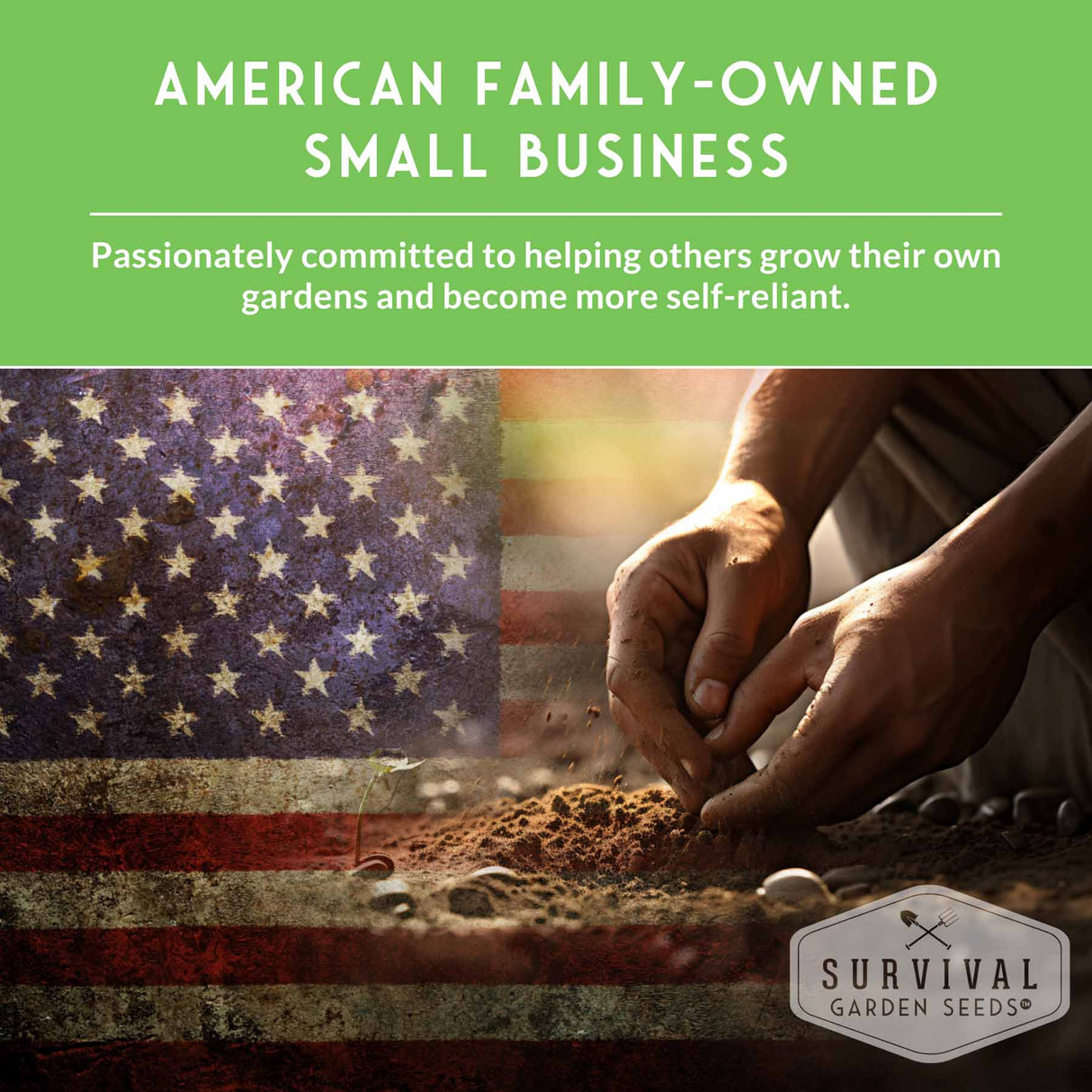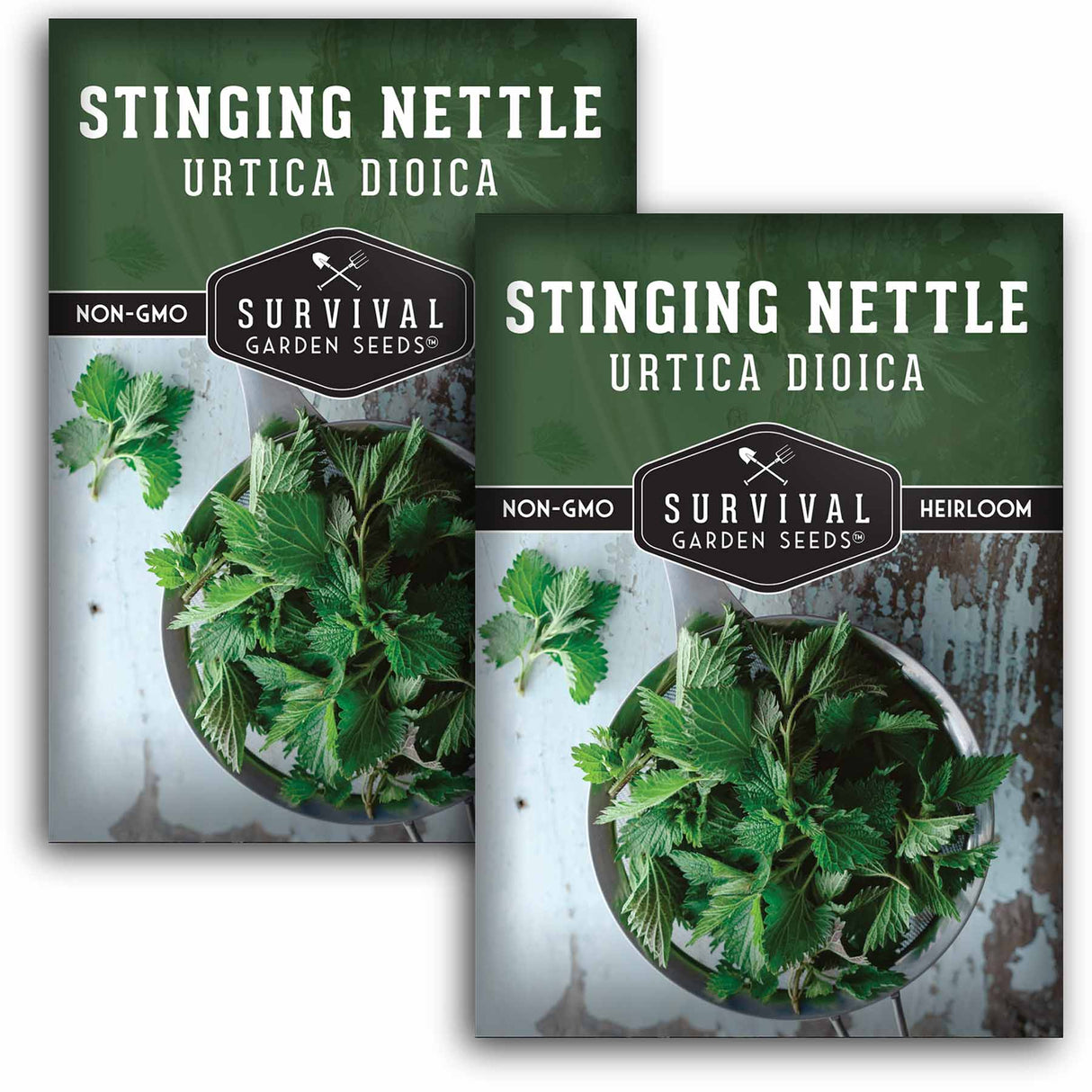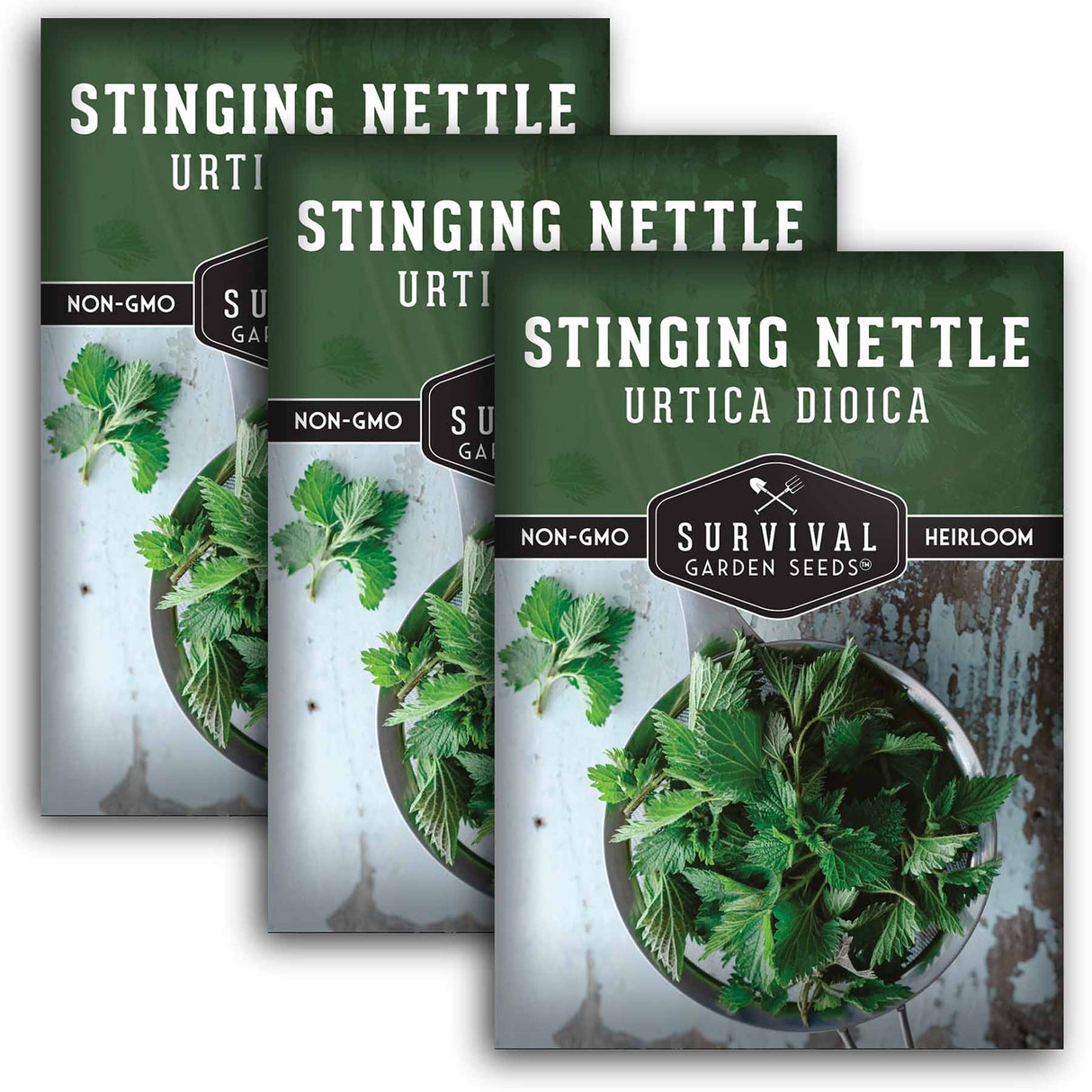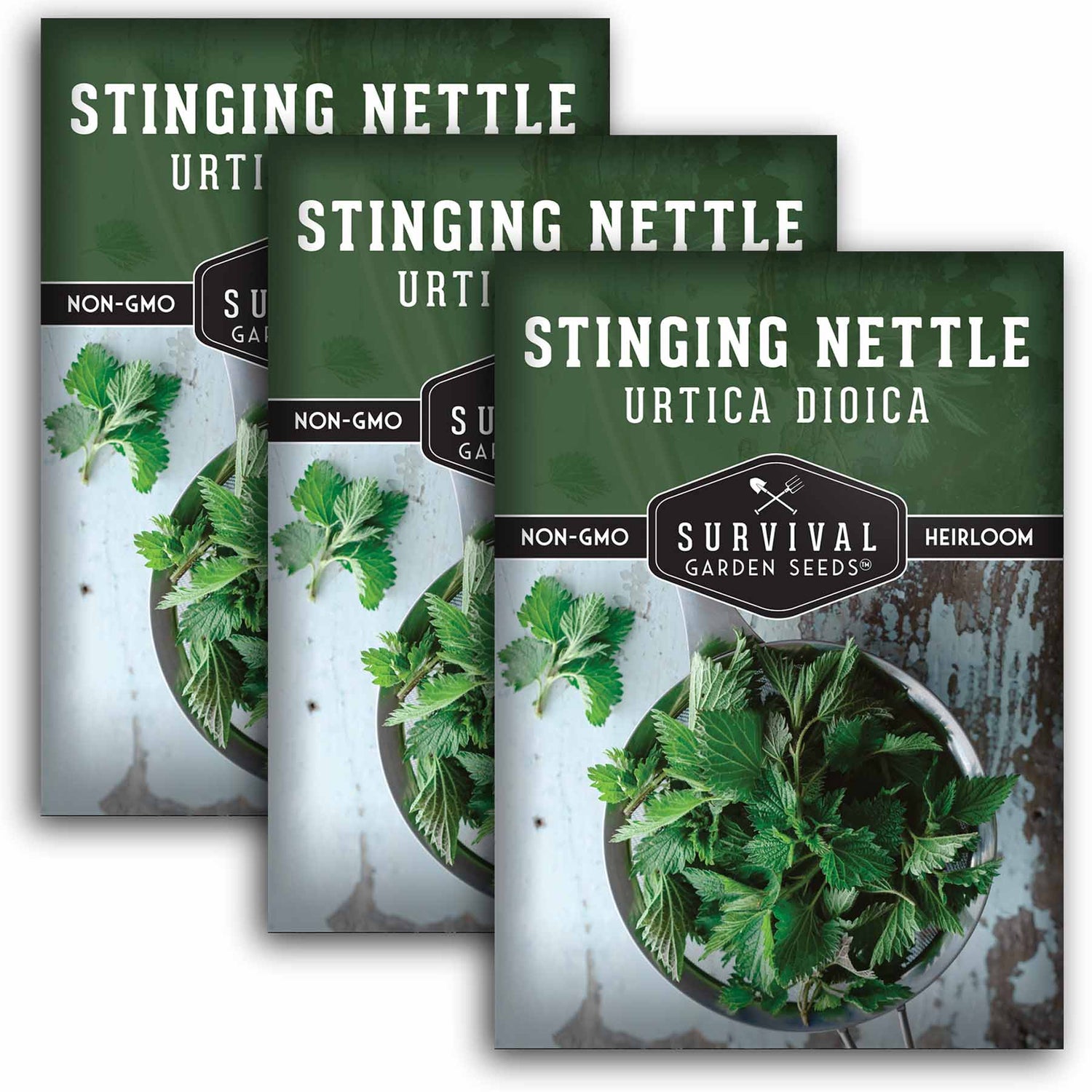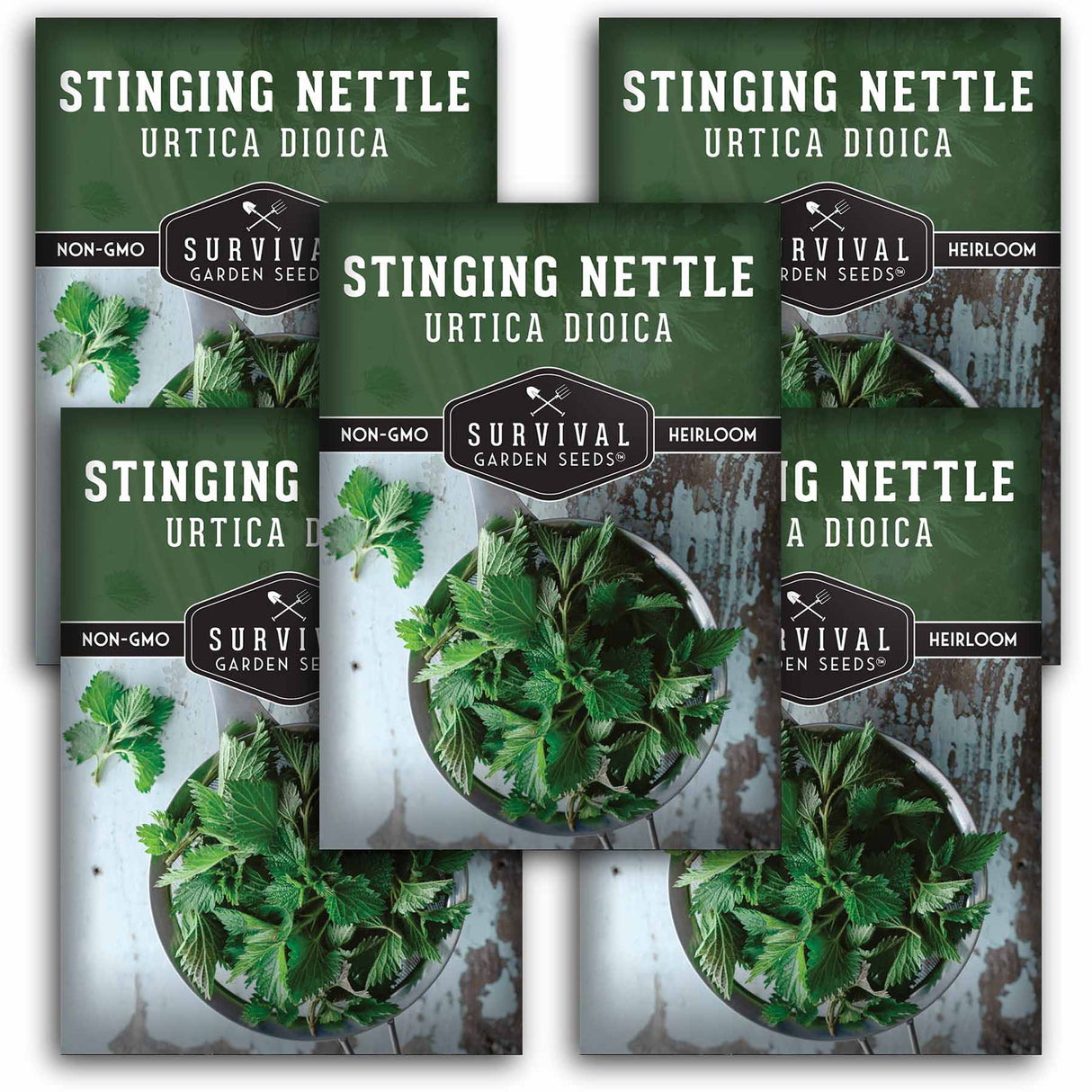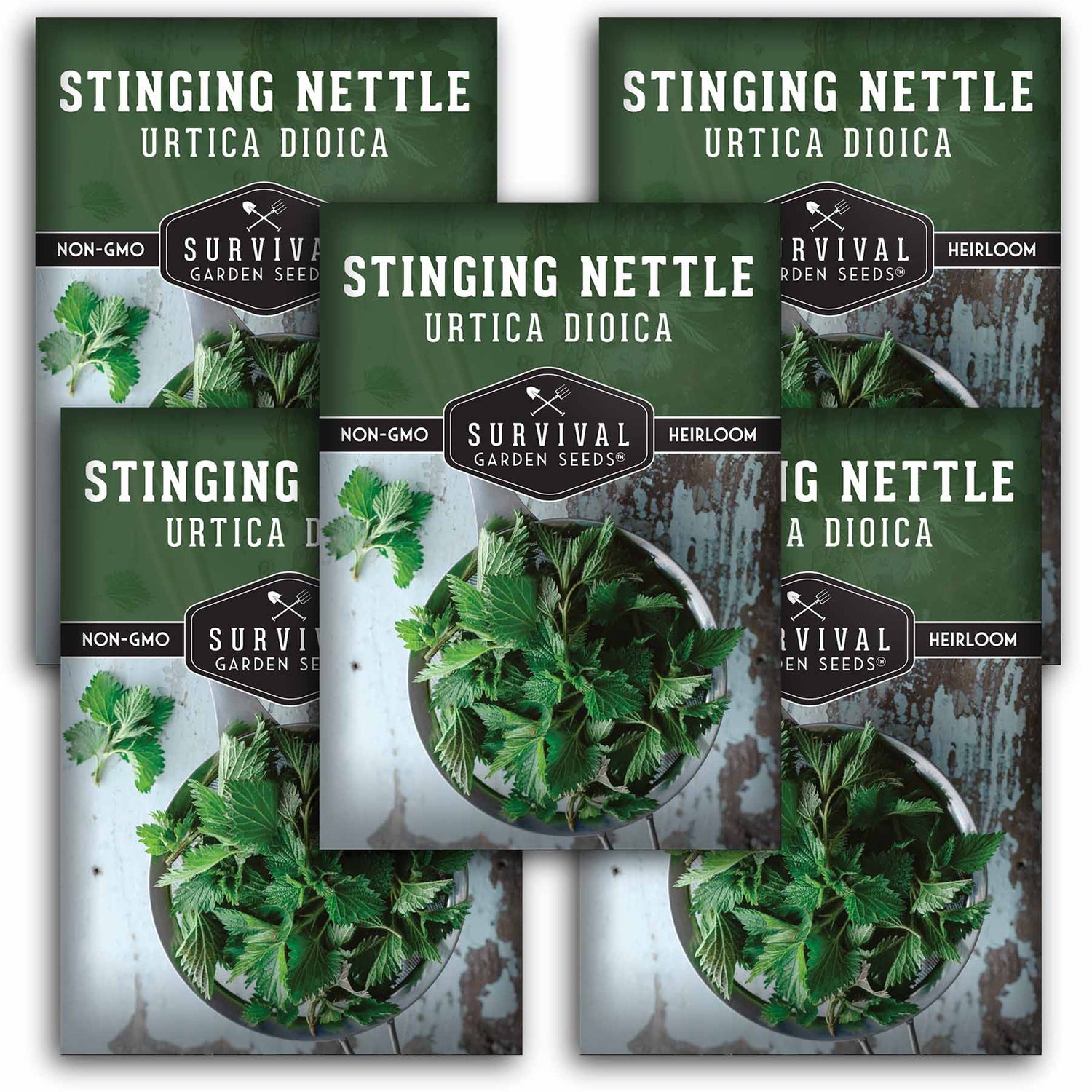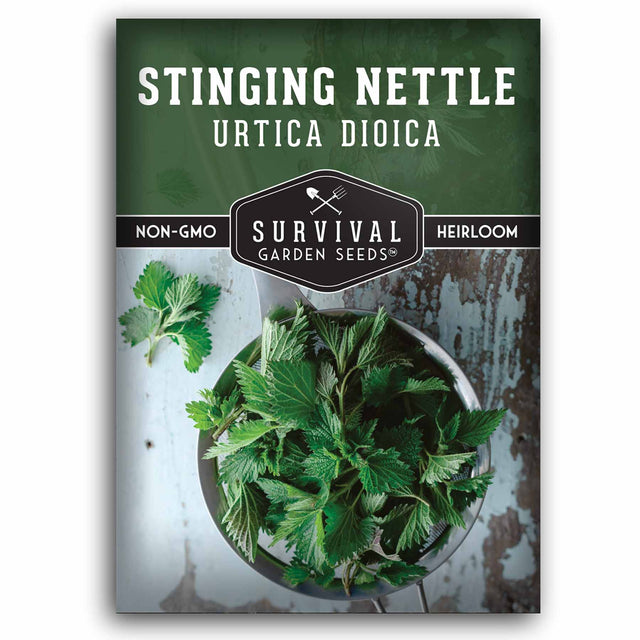Stinging Nettle Seeds – Urtica dioica | Heirloom Perennial Herb for Herbal Teas, Cooking & Biodiversity Gardening
Heirloom - Non-GMO - Reliable Germination
Stinging Nettle Seeds – Urtica dioica | Heirloom Perennial Herb for Herbal Teas, Cooking & Biodiversity Gardening - 1 Packet is backordered and will ship as soon as it is back in stock.
Couldn't load pickup availability
Grow one of nature’s most nutrient-rich herbs with Stinging Nettle Seeds (Urtica dioica). Native to Europe, Asia, and Africa, this versatile perennial has been treasured for centuries in herbal and culinary traditions. Despite its famous sting, stinging nettle becomes a nourishing, mild-flavored green once dried or cooked—making it a staple in herbal teas, soups, and leafy green dishes.
A Hardy, Beneficial Herb for the Garden:
Stinging nettle thrives in a wide range of soils and conditions, often returning year after year. Growing up to 3–7 feet tall, it features heart-shaped, serrated leaves covered in fine hairs that create its signature sting when touched raw. In the garden, nettle enhances biodiversity, attracts beneficial insects, and supports soil health as a dynamic accumulator of minerals.
Why Gardeners Love Stinging Nettle:
- Hardy perennial that thrives in sun or partial shade
- Edible and medicinal once dried or cooked
- Excellent source of vitamins, minerals, and plant protein
- Perfect for herbal teas, soups, and nutrient-rich greens
- Non-GMO, heirloom variety that naturalizes easily
- Supports pollinators and beneficial garden insects
How to Grow:
Sow seeds directly outdoors in early spring or late fall, or start indoors 4–6 weeks before the last frost. Nettle seeds need light to germinate, so press gently onto the soil surface without covering. Keep soil moist until germination, typically in 10–14 days. Transplant or thin seedlings to 12–18 inches apart in moist, well-drained soil. Once established, stinging nettle requires minimal care and will spread naturally.
Harvest & Use:
Harvest young leaves before flowering for the best flavor and texture. Use gloves to avoid stings when harvesting. Leaves can be steamed, sautéed, or dried for tea. Cooking or drying neutralizes the sting, leaving a mild, earthy taste similar to spinach. Nettle tea is valued for its mineral content and traditional wellness benefits.
Net Wt. 500MG
Learn more planting Stinging Nettle in our Survival Garden Training Blog
- The Benefits of Growing Stinging Nettle
Heirloom Herb Seeds
All of our seeds are open-pollinated, non-GMO, heirloom varieties with tested germination rates
Specifications
Specifications
-
Botanical Name
-
Seasonality
-
Planting Zones
-
Light
-
Soil Temp for Germination
-
Germination Time
-
Planting Depth
-
Plant Size
-
Days to Bloom or Harvest
-
Growing Instructions
-
Seed Saving Instructions
-
Seed Count (approximate)
Payment & Security
Your payment information is processed securely. We do not store credit card details nor have access to your credit card information.
Why Choose Survival Garden Seeds
At Survival Garden Seeds, we believe in preparing today for tomorrow’s peace of mind. That’s why we offer only heirloom, non-GMO, and untreated seeds you can trust to nourish your family and support a sustainable lifestyle. As a family-owned American company, we’re committed to providing seeds that grow strong and true—helping you cultivate health, resilience, and beauty in your garden.
Frequently Asked Questions
Are your seeds heirloom and open-pollinated?
Are your seeds heirloom and open-pollinated?
Yes. All of our seeds are heirloom, open-pollinated varieties, which means they can produce seeds that grow true to type and are suitable for seed saving.
You can learn more about open-pollinated, heirloom, and non-GMO seeds in our Survival Garden Training blog.
Are your seeds non-GMO?
Are your seeds non-GMO?
Yes. All Survival Garden Seeds are 100% non-GMO. Our seeds are open-pollinated heirloom varieties and are never genetically modified.
Are your seeds treated with chemicals?
Are your seeds treated with chemicals?
No. Our seeds are completely untreated and free from chemical coatings, fungicides, or synthetic treatments.
How do I know my seeds are fresh?
How do I know my seeds are fresh?
Every seed packet includes a packed-for date, and we germination-test each seed lot before packaging to ensure high viability.
What is the shelf life of your seeds?
What is the shelf life of your seeds?
Most seeds remain viable for 3 to 5 years or longer when stored properly in a cool, dry place away from light and moisture.
In what USDA hardiness zones can I grow your seeds?
In what USDA hardiness zones can I grow your seeds?
Our varieties are selected to grow successfully across USDA Hardiness Zones 3 through 10. Each packet includes variety-specific planting guidance and germination tips.

